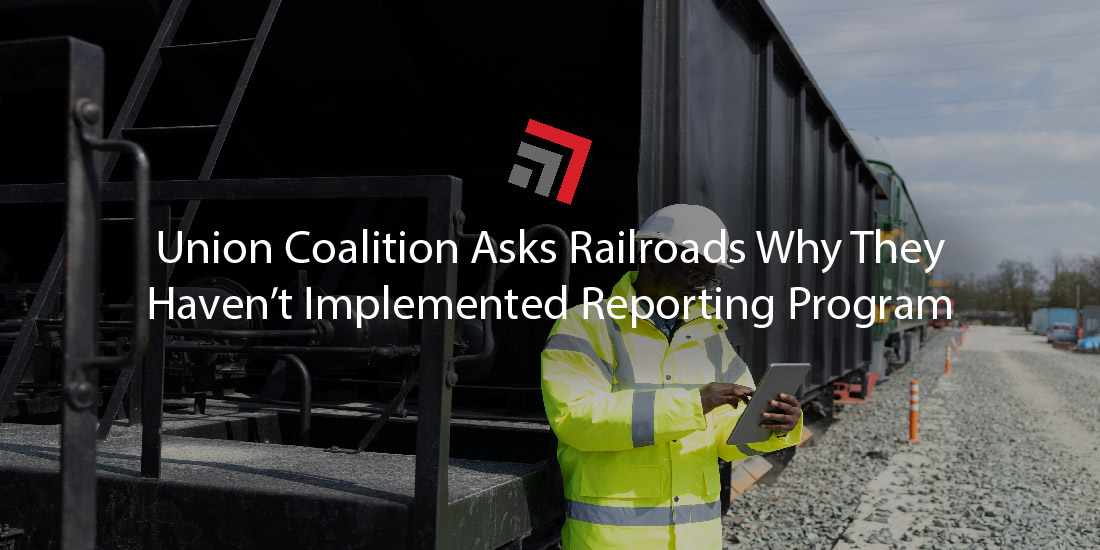The Transportation Trades Department (TTD), a coalition with 37 member unions, is concerned that railroads haven’t budged on implementing a federal program that enables railroad employees to anonymously report safety-related incidents.
TTD, whose primary purpose is influencing labor policy across all transportation modes (including rail), sent letters to each of the six American Class I railroads asking a rather simple question—why haven’t you signed up yet?
No railroads have adopted the program yet
Railroad trade group Association of American Railroads (AAR) stated earlier in the year that the railroads were committed to signing on to the Federal Railroad Administration’s confidential close call reporting system (C3RS).
Despite this assurance, it’s been nearly six months and not one railroad has voluntarily joined the program.
While TTD’s letters acknowledge ongoing conversations railroads have been having with unions and regulators over certain provisions of the program and where they would like to see modifications, the group has also warned these talks may be stalling to the point of intentional delay.
TTD’s tone could best be described as urgent. The group referenced federal data that shows a reportable injury occurs as often as every three hours, while a derailment (of over $11,500 in damage) occurs every eight hours.
TTD went on to cite the successes of safety-reporting programs in other industries, like aviation where fatality rates fell by 83 percent in less than a decade.
Rail employees, deemed the “eyes and ears of the system” in the letters, are not able to fully leverage their perspectives about safety-incidents, TTD said. The group urges C3RS will empower the workers’ accounts and improve safety in the rail industry.
Railroads need to see modifications
On behalf of the railroads, AAR responded to the letters. The group said the railroads continue to work and cooperate with union members and regulators on the program. There are aspects, according to AAR, that it would like to see modifications to.
In a March letter from AAR President Ian Jefferies to U.S. DOT Secretary Pete Buttigieg, this includes ensuring confidentiality of program participants, addressing repeated unsafe conduct with employees, and enabling collected information to be shared industry-wide.
AAR has said in a statement that confidential employee reporting is a helpful tool to prevent accidents. While no railroads have onboarded with this program yet, the trade group insists all hands are engaged in a collaborative process to improve the C3RS program.
Aside from pending participation in this federal program, Class I railroads also have internal programs for employees to report safety concerns.
Final Thoughts
Railroads’ initial commitments to adopting this program came a few weeks after Norfolk Southern’s February derailment in Ohio.
The rail industry and its safety record were under a microscope following the incident. At the time, railroads couldn’t place a proposal like this on the backburners as the optics would’ve been horrible.
The publicized derailment and subsequent scrutiny towards railroads have erected safety as an immovable obstacle they must negotiate. For railroads to salvage any public reprieve, they are fighting an uphill battle.
It’s been a war of attrition between public opinion and railroads.
This isn’t to say whether or not they are committed to improving operational accountability, but, from the general public’s view, their delayed compliance to adopting this reporting program comes off as lukewarm initiative, while unions and regulators continue to address rail’s safety crisis.
Please contact us if you have any questions regarding this topic or any others in domestic logistics. In addition, stay up to date with weekly headlines from both trucking and rail via our Road Map newsletter.
More blogs similar to this:



Recent Comments